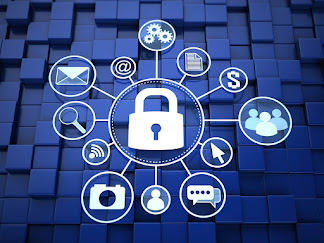RAISE AWARNESS ABOUT CYBERSECURITY
The number of cyber-attacks is exploding, exploiting the fear generated by the Covid-19 crisis. Never has it been so important to educate users about cybersecurity when it has rarely been so difficult to reach them, often isolated by teleworking.
Taking into account this particularly difficult context, we develop here the notion of benevolent awareness.People are the most important part of a cybersecurity
strategy.
It is humans who use the IS.
It is humans who make the decisions about how to classify and
protect information.
Humans react or not to incidents
However, while it has probably never been so important to
educate users, it has rarely been so difficult to reach them.
We are indeed living in an unprecedented situation. The health
crisis follows an economic crisis of which we agree that the worst is in front
of us.
Many employees work from home. They have to adapt to a new
organization, maybe temporary, working. More isolated, they find themselves
having to adapt in a particularly anxiety-provoking context. They are worried
about their health and that of their loved ones. They are also often worried
about their jobs and their economic future. This situation, where apprehension
and frustration dominate, is not the most favorable to listening to employees,
especially in terms of cybersecurity.
Cybercriminals, on the other hand, have understood the
advantage they could derive from this situation. The attacks keep increasing.
Thus the publisher Barracuda Networks reports a 667% growth in phishing attacks
in March. We know that a phishing attack is all the more effective when it is
based on the springs of fear and urgency. The current situation constitutes a
favorable ground for scams and attacks of all types. Attacks exploiting this
fear of disease take a wide variety of forms.
We are therefore faced with a dilemma and a difficult equation
to resolve. The need for awareness has never been greater even though reaching
out to users and getting their messages across has never been so difficult.
This is how it becomes necessary to introduce the notion of
benevolent awareness.
This benevolent awareness must be based on a few simple
principles:
Give meaning - explain the issues: explain why we are raising
awareness, why it is essential to adopt the principles of digital hygiene, what
the threat is and what the consequences may be, giving examples, 'a successful
attack.
Explain that the requested behaviors aim to protect them, at
the same time as their business. Indeed, the psychological consequences of a
social engineering attack on the person who is the victim, can be serious. In
this type of attack, it is the person who is the target who is the first victim
even before the target company.
Proximity, personal use: You have to stick as much as possible
to the situations that employees encounter. It is therefore necessary to
decline the messages according to their respective situations. For employees
working from home, in a setting where the workplace becomes home, it can be
useful and appreciated to explain to them how to strengthen the security of
their digital home.
Empower them: we must explain to them that they must become
the strong link in cybersecurity. It is indeed because each of them will be an
actor that the company will be protected.
Thank: You should never hesitate to thank employees for their
participation and commitment to keep their company safe from cyber-attacks.
Give feedback: whether before, during or after awareness
campaigns, you have to give feedback to users. You have to give them the
feeling of participating in a general impetus.
Create a network - rely on “champions”: this is all the more
true as participation in awareness campaigns is low. Tell yourself that in this
case, it means that those who participate feel all the more concerned. Lean on
them.
By doing this, we will
be able to move users out of the fear zone where many of them find themselves
into a learning zone from which they will evolve towards a real cybersecurity
culture.




Comments
Post a Comment